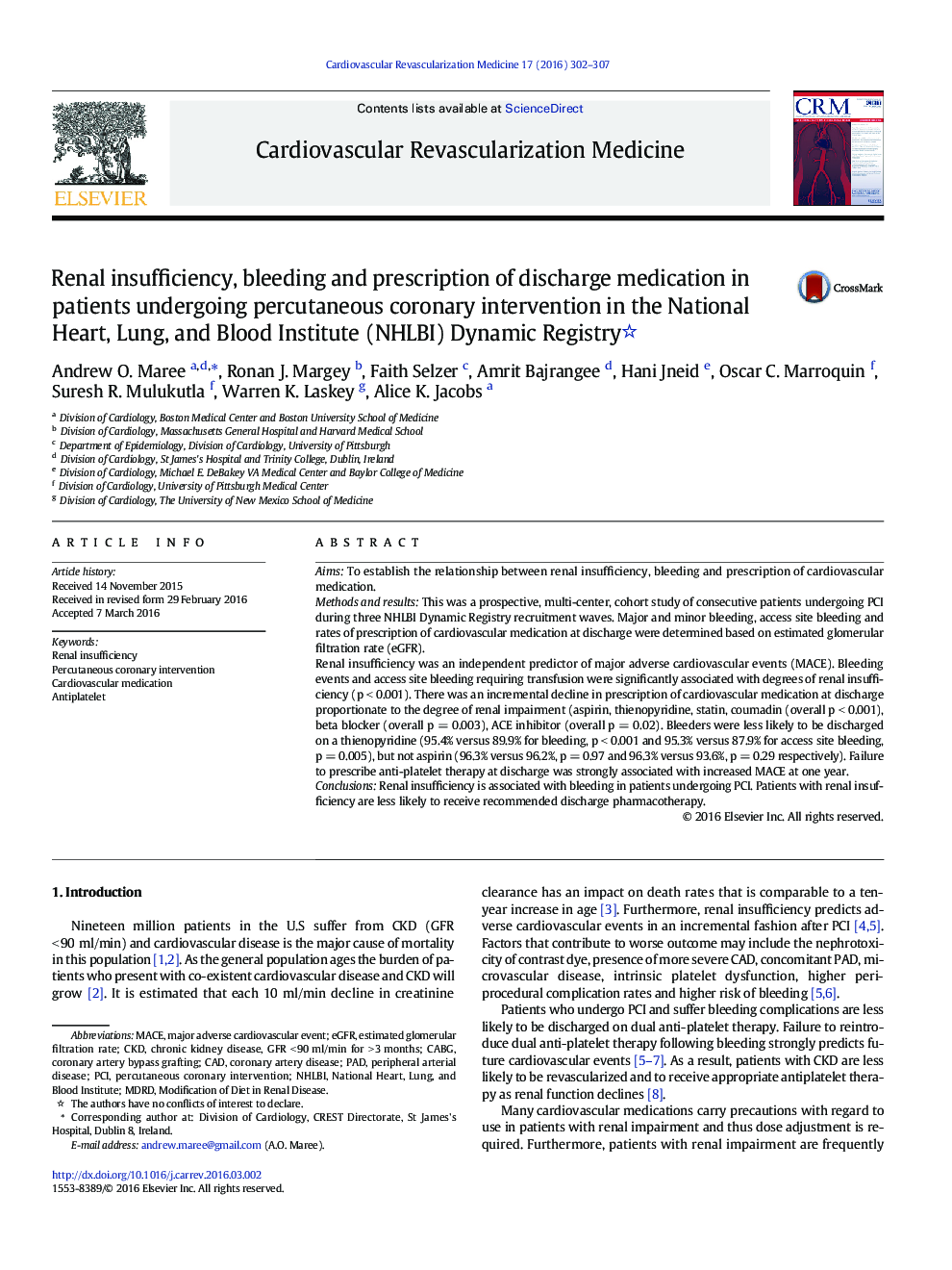| کد مقاله | کد نشریه | سال انتشار | مقاله انگلیسی | نسخه تمام متن |
|---|---|---|---|---|
| 2836855 | 1164862 | 2016 | 6 صفحه PDF | دانلود رایگان |
• Patients undergoing PCI frequently have derangements in renal function, which is an independent risk factor for MACE.
• Renal impairment increases the risk of bleeding complications the squeal of which is a failure to discharge patients on guideline pharmacotherapy.
• This is associated with higher rates of death, re-infarction and repeat revascularization upon follow-up.
AimsTo establish the relationship between renal insufficiency, bleeding and prescription of cardiovascular medication.Methods and resultsThis was a prospective, multi-center, cohort study of consecutive patients undergoing PCI during three NHLBI Dynamic Registry recruitment waves. Major and minor bleeding, access site bleeding and rates of prescription of cardiovascular medication at discharge were determined based on estimated glomerular filtration rate (eGFR).Renal insufficiency was an independent predictor of major adverse cardiovascular events (MACE). Bleeding events and access site bleeding requiring transfusion were significantly associated with degrees of renal insufficiency (p < 0.001). There was an incremental decline in prescription of cardiovascular medication at discharge proportionate to the degree of renal impairment (aspirin, thienopyridine, statin, coumadin (overall p < 0.001), beta blocker (overall p = 0.003), ACE inhibitor (overall p = 0.02). Bleeders were less likely to be discharged on a thienopyridine (95.4% versus 89.9% for bleeding, p < 0.001 and 95.3% versus 87.9% for access site bleeding, p = 0.005), but not aspirin (96.3% versus 96.2%, p = 0.97 and 96.3% versus 93.6%, p = 0.29 respectively). Failure to prescribe anti-platelet therapy at discharge was strongly associated with increased MACE at one year.ConclusionsRenal insufficiency is associated with bleeding in patients undergoing PCI. Patients with renal insufficiency are less likely to receive recommended discharge pharmacotherapy.
Journal: Cardiovascular Revascularization Medicine - Volume 17, Issue 5, July–August 2016, Pages 302–307
